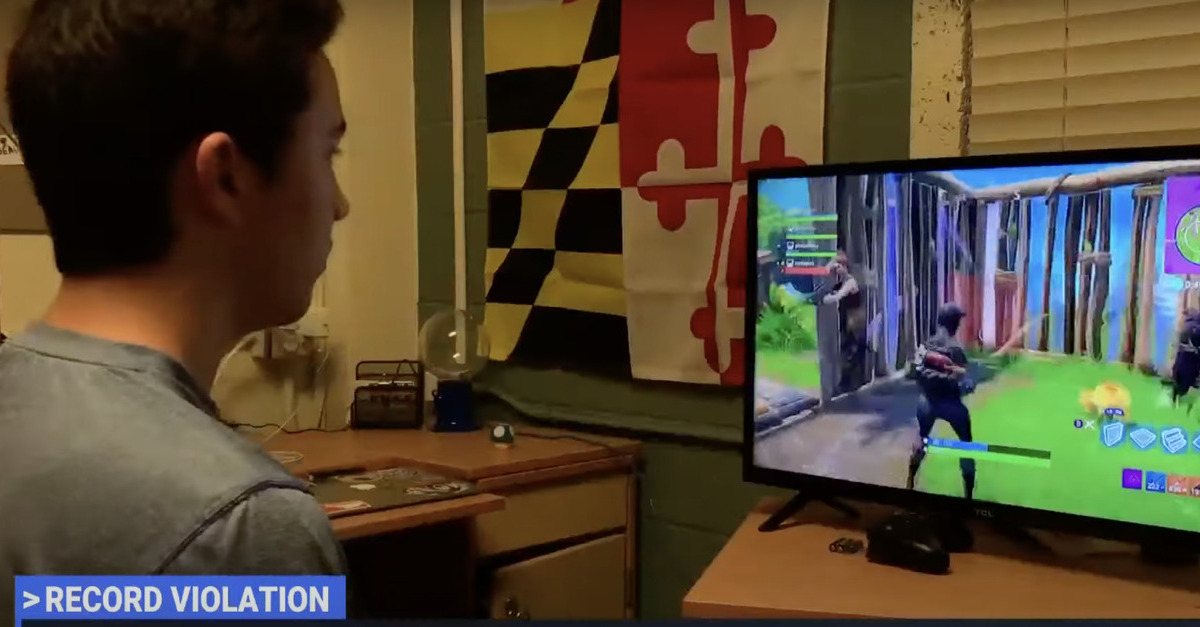
A child plays Fortnite.
The makers of video game sensation Fortnite will pay out half a billion dollars to settle a set of claims that it violated federal law by exposing children to myriad online dangers, including harassment, bullying, psychological trauma, sexual predation, and invasion of privacy. U.S. authorities also say that it tricked users into making unintentional purchases.
The Department of Justice filed a complaint Monday against Epic Games in the U.S. District Court for the Eastern District of North Carolina. The filing alleged that Epic Games designed and marketed Fortnite for use by children and that it knowingly collected personal information from children without notifying their parents or obtaining consent. The DOJ also alleged that Epic Games maintained illegal default privacy setting son its games, some of which publicly broadcast the user names of underage players, thereby putting minors in direct, real-time communication with adult players.
“Children and teens have also been exposed to dangerous and psychologically traumatizing issues, such as suicide and self-harm, through Fortnite,” the DOJ said. The complaint also claimed that “the few relevant privacy and parental controls Epic has introduced over time have not meaningfully alleviated these harms or empowered players to avoid them.”
The DOJ’s complaint was filed in conjunction with an announcement that the case was settled for unprecedented penalties. According to an official statement, Epic Games has agreed to pay $275 million for alleged violations of the Children’s Online Privacy Protection Act (COPPA). The massive penalty is largest civil penalty ever imposed for a COPPA violation since the law was enacted in 1998.
“This historic civil penalty, totaling over a quarter-billion dollars, lays down a marker for online service providers everywhere,” said U.S. Attorney Michael Easley for the Eastern District of North Carolina. “The unauthorized collection of personal information from children online violates the law. The Department of Justice and the Federal Trade Commission have a strong partnership and are committed to deterring violations.”
In addition to the COPPA violations, the Federal Trade Commission (FTC) pursued a separate series of claims against Epic Games which alleged that the company used design tricks, known as “dark patterns,” to “dupe millions of players into making unintentional purchases.” To settle the FTC claim, Epic Games will pay $245 million in refunds to consumers, which is the largest refund in history for a gaming case.
The federal court must approve the joint settlement of both sets of claims before it officially takes effect. Once that approval is secured, the terms of the agreement will prohibit Epic Games from continuing its problematic data-collection practices without parental consent. The agreement also requires Epic Games to maintain default privacy settings geared toward protecting the privacy of children and teens. Epic Games will also be permanently enjoined from certain use of personal data it has already collected from children.
“The Justice Department takes very seriously its mission to protect consumers’ data privacy rights,” said Associate Attorney General Vanita Gupta in an official statement. “This proposed order sends a message to all online providers that collecting children’s personal information without parental consent will not be tolerated.”
“Parents have a right to know and to consent before companies collect their children’s personal information,” said Principal Deputy Assistant Attorney General Brian M. Boynton, head of the Department of Justice’s Civil Division. “The department is committed to enforcing the protections against unauthorized collection of information from consumers, particularly children.”
FTC Chair Lina M. Khan said: “Protecting the public, and especially children and teens, from online privacy invasions is a top priority for the Commission, and this enforcement action makes clear to businesses that the FTC is cracking down on these unlawful practices.”
Epic Games released a statement on its website Monday announcing the historic settlement. A portion of that statement reads:
No developer creates a game with the intention of ending up here. The video game industry is a place of fast-moving innovation, where player expectations are high and new ideas are paramount. Statutes written decades ago don’t specify how gaming ecosystems should operate. The laws have not changed, but their application has evolved and long-standing industry practices are no longer enough. We accepted this agreement because we want Epic to be at the forefront of consumer protection and provide the best experience for our players.Over the past few years, we’ve been making changes to ensure our ecosystem meets the expectations of our players and regulators, which we hope will be a helpful guide for others in our industry.
[screengrab via YouTube/MSNBC]